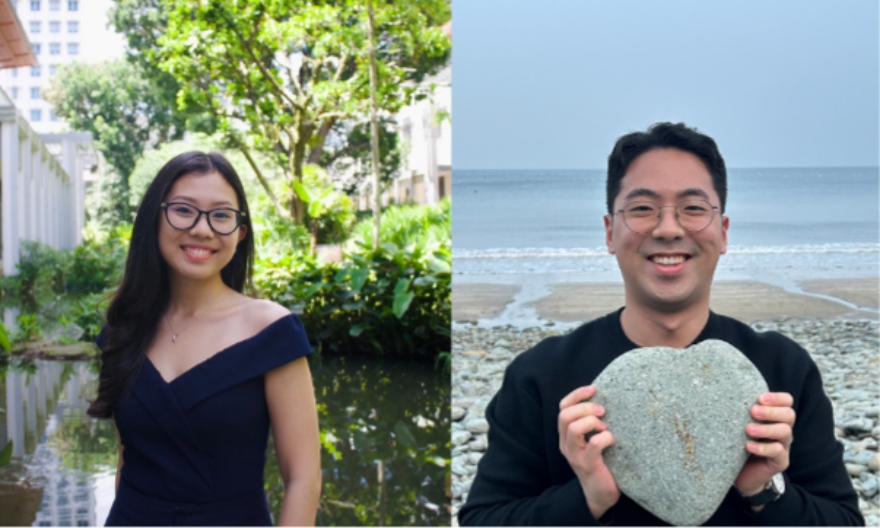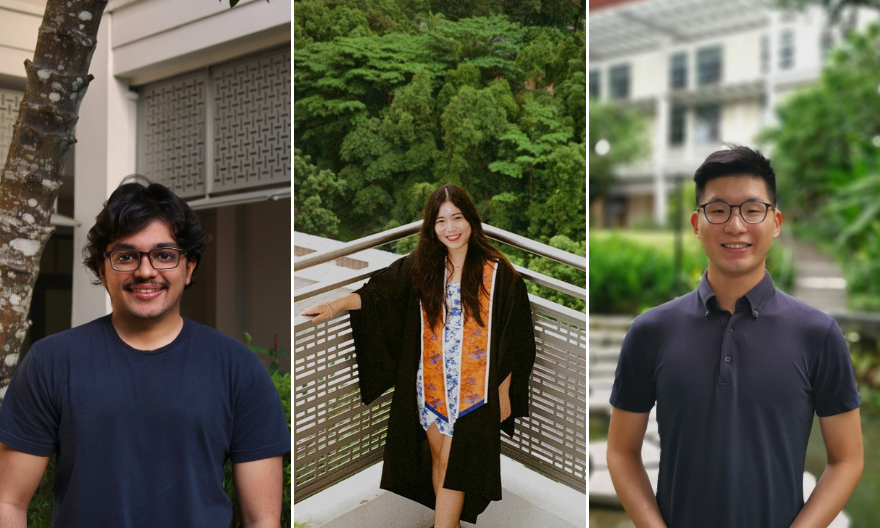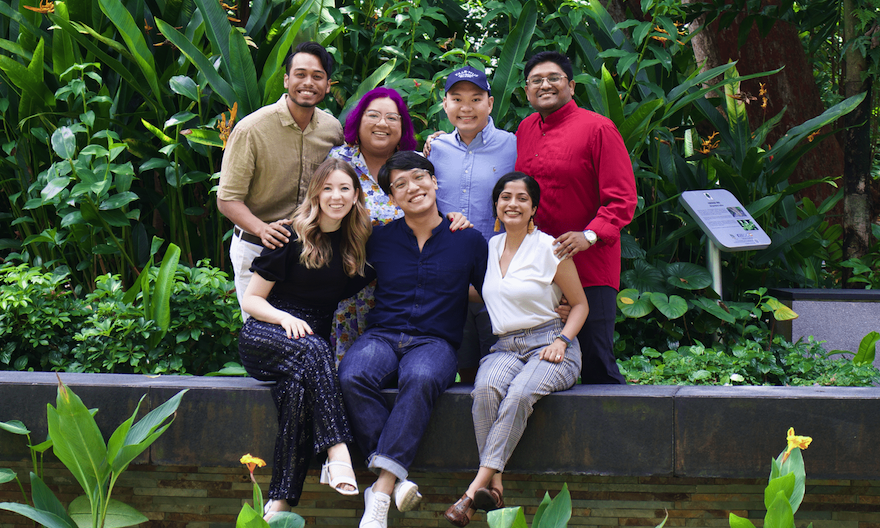Behind the green initiatives at Yale-NUS College
Yale-NUS students and alumni spearhead initiatives that encourage more people to adopt greener lifestyle habits, through growing their own food
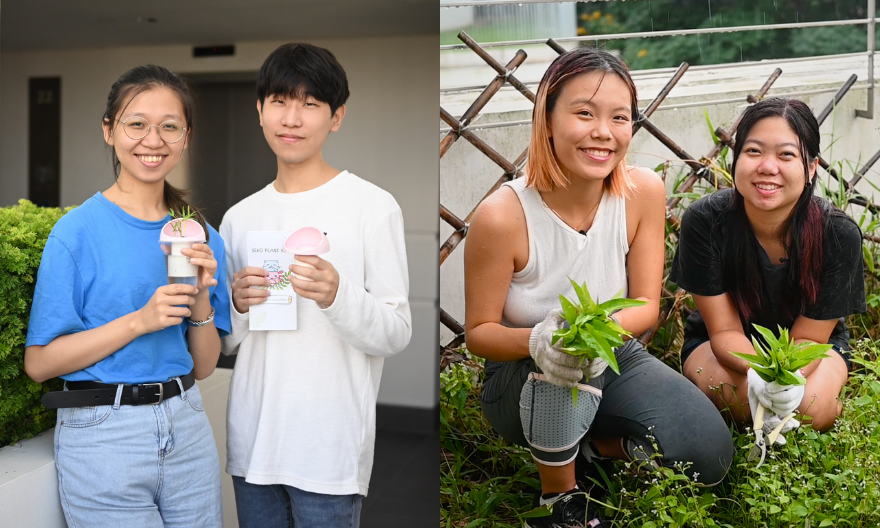
Participating in the sustainability movement can take many forms. In celebration of Earth Day , this article seeks to spotlight two initiatives founded by Yale-NUS students and alumni that seek to encourage more people to adopt greener lifestyle habits – by growing their own food.
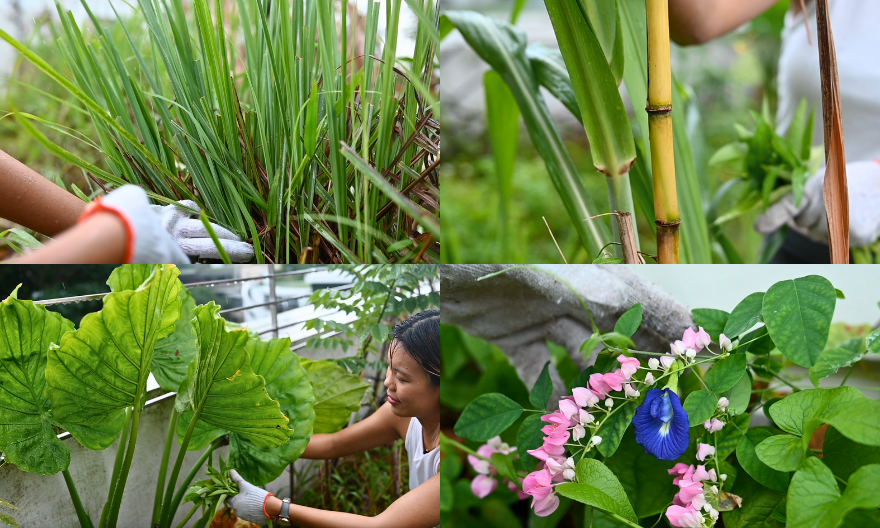
The balconies at the fourth floor at Saga and second level of Cendana were once empty and barren spaces. Today, they are luscious and green plots managed by the Yale-NUS Farming Collective.
Rain or shine, the student organisation meets once a week for their farming sessions where they tend to their crops. They grow a wide variety of vegetation, including kangkong, lemongrass, sugarcane, butterfly blue pea and ulam raja. After a semester’s worth of careful cultivation, the students literally get to taste the fruits of their harvest. At the end of every semester, they host a community cooking session where they cook a range of delicious dishes from nasi ulam to sambal kangkong and sip on lemongrass tea.
These regular farming sessions allow students to be exposed to various methods of farming, growing their keen interest this field. In addition, by adopting this farm-to-table concept and creating opportunities for people to be involved in growing their own food, the Yale-NUS Farming Collective hopes to promote their mission of food sustainability.
Head of Operations of the farm, Lum Wan Tong (Class of 2023), especially treasures the ground-up spirit of the student group. Said Wan Tong, “Everything that we plant here is inspired by someone’s idea, and we consult professors and different people in the farming industry. But ultimately, everything is done through our hard work and effort. I think that’s the most rewarding part about being in Yale-NUS Farming.”
Other than organising activities internally, the Collective also makes an intentional effort to involve the rest of the College community.
For example, several times a semester, the Collective invites the student population to community composting sessions. Students bring collected food waste or food scraps, such as egg shells and fruit peels, to the farm to be composted. The Farming Collective will then use the compost to improve the soil on their farm for their crops to grow better.
The student organisation also hosts talks and workshops to share their passion for food and farming with the greater Yale-NUS community. Last November, they hosted SayurStory, a community group that engages Singapore’s female migrant domestic workers in gardening. During the farm tour, the Collective exchanged tips and tricks about cultivating crops with the women from SayurStory. The migrant domestic workers also shared their own experiences with plants while growing up in the Philippines and Indonesia.
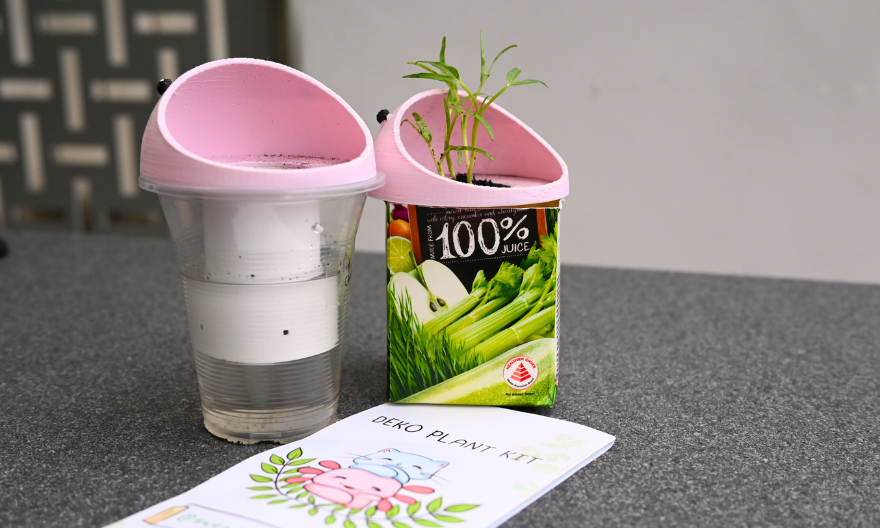
Huang Huanyan (Class of 2023) and alumni Richard Shim Jo (Class of 2022) also share this goal in advocating for the environment. Together, they created the Deko Plant Kit, a self-watering plant kit made from old and used containers such as bubble tea cups and drink cartons. , and is sold on their online platforms.
Not blessed with green fingers themselves, Huanyan and Richard were eager to create a product that could allow them to explore planting with little knowledge and commitment. Said Huanyan, “I wanted to start this plant kit because I was really into upcycling, and I realised I was generating a lot of trash from my own lifestyle. I wanted to do something that could allow me to be sustainable despite that lifestyle.”
The plant kit was intentionally designed to be easy to use. The only thing users need to provide is an appropriate empty container to upcycle as a pot for the plant, the rest is provided in the kit. Users just need to fill the plant holder with soil, plant the seed card into the soil, and place the plant holder into the water-filled container. After just two to three weeks, users should see their vegetables sprouting.
“Because of the self-watering feature, we left one alone for a month and it was thriving when we returned.” shared Richard. Users can choose to plant a range of herbs and veggies, including bok choy, basil, mint, red spinach and kangkong.
The pair designed the kit with the intention of nudging users develop a habit for upcycling and repurposing waste. Said Huanyan, “Everyone has to upcycle at least one container per kit. With that, we’re hoping we can save more disposable containers from being sent to the waste because plastic waste is a huge concern for Singapore, and it’s very hard to think of ways in which we can upcycle containers.” Huanyan shared.
Both initiatives highlight students’ efforts towards sustainability, and are resonant in their aims to incorporate more green practices into urban lifestyles. By making use of their respective interest areas and expertise, Yale-NUS students and alumni have created solutions that seek to slowly shift people’s behaviour and attitudes towards our Earth, and in the process also inspire a greater care for the environment on campus.

